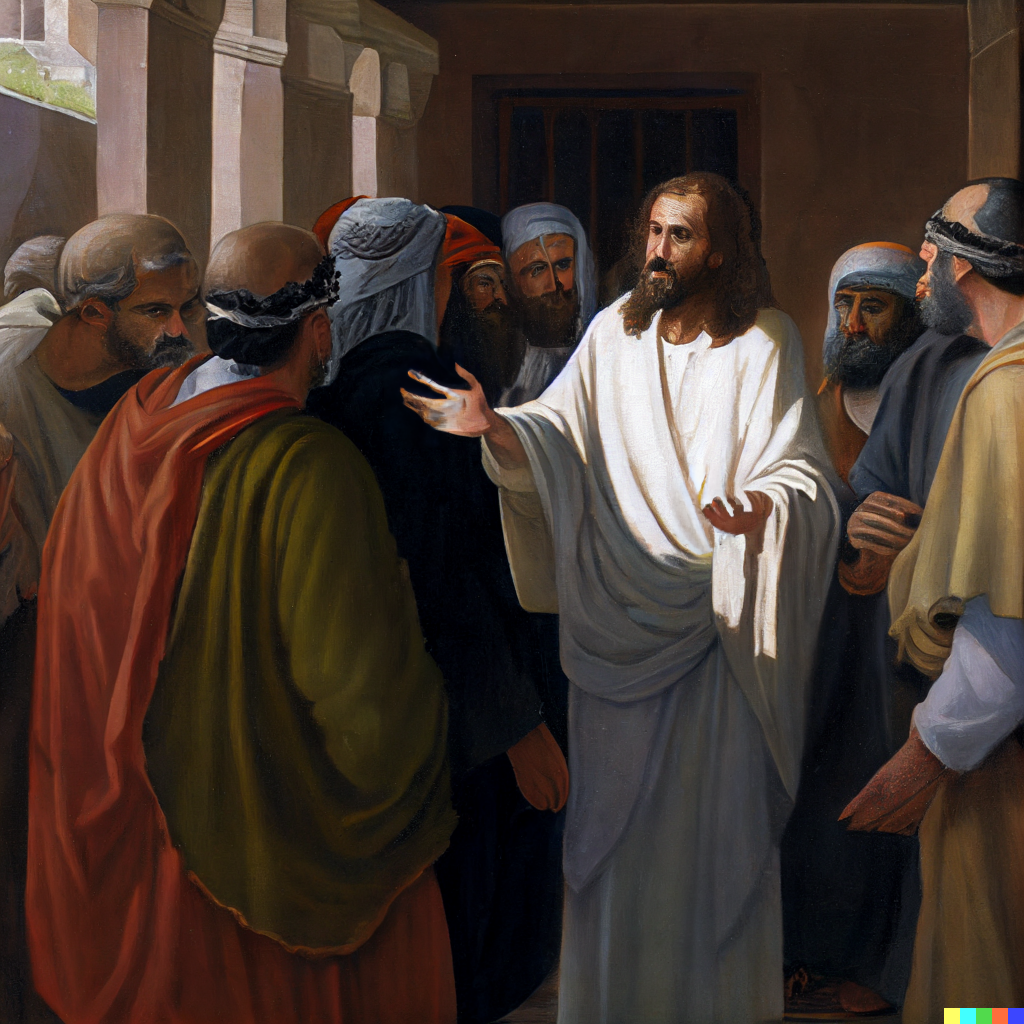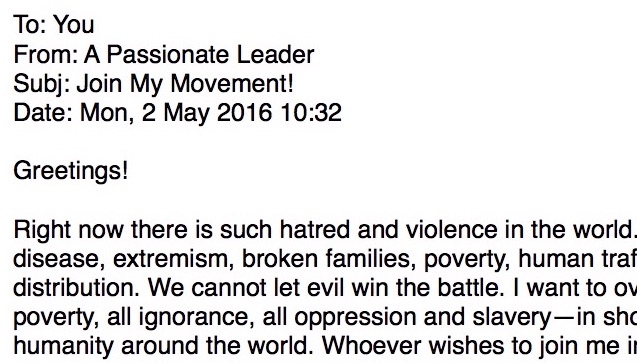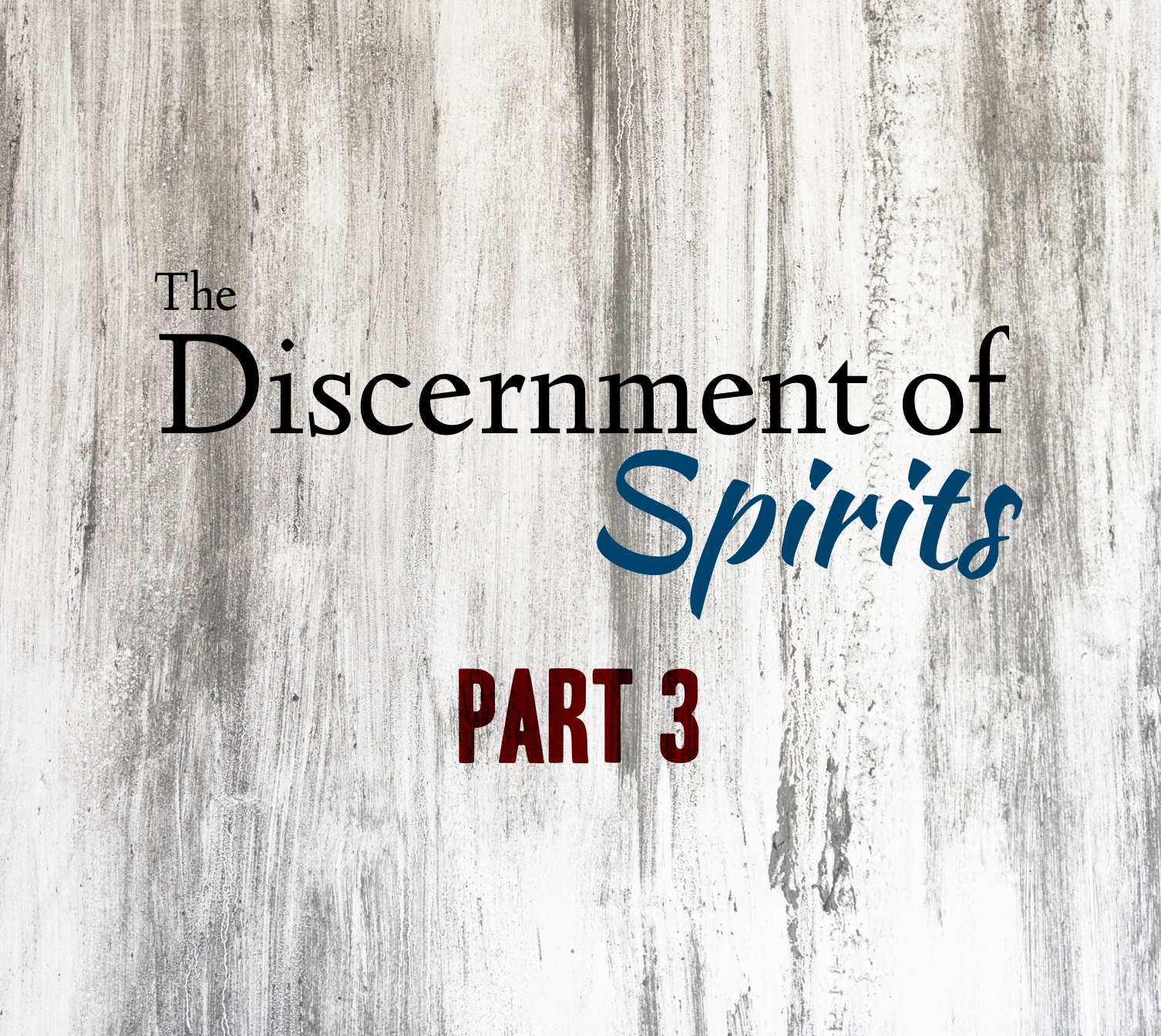As often happens, Jesus encounters people who simply miss the point of his message. In the Gospel of Luke, Jesus encounters the Pharisees who ask a question:
Once Jesus was asked by the Pharisees when the kingdom of God was coming, and he answered, ‘The kingdom of God is not coming with things that can be observed; nor will they say, “Look, here it is!” or “There it is!” For, in fact, the kingdom of God is among you.’
Then he said to the disciples, ‘The days are coming when you will long to see one of the days of the Son of Man, and you will not see it. They will say to you, “Look there!” or “Look here!” Do not go, do not set off in pursuit. (17:20-23)
 So the kingdom of God cannot be observed. It’s interesting because Jesus’ healings are visible signs of God’s kingdom—God’s reign here and now. Right? Perhaps these healings caused people to miss the invisible manifestation of God’s kingdom. In fact, the healings were a mode to the inner transformation of the person, and was often connected with forgiveness. When John the Baptist and Jesus used the word repentance, they weren’t just talking about remorse for sin. The Greek word in the text, metanoia, means to change one’s mind. In other words, one’s perspective is changed, one’s worldview: There’s an inner transformation that occurs. This is the kingdom of God.
So the kingdom of God cannot be observed. It’s interesting because Jesus’ healings are visible signs of God’s kingdom—God’s reign here and now. Right? Perhaps these healings caused people to miss the invisible manifestation of God’s kingdom. In fact, the healings were a mode to the inner transformation of the person, and was often connected with forgiveness. When John the Baptist and Jesus used the word repentance, they weren’t just talking about remorse for sin. The Greek word in the text, metanoia, means to change one’s mind. In other words, one’s perspective is changed, one’s worldview: There’s an inner transformation that occurs. This is the kingdom of God.
Metanoia’s Arrival
And it wasn’t just healings. Jesus’ encounters with public sinners like Zacchaeus created an inner metanoia. The only thing visible to outsiders was Jesus speaking to Zacchaeus, inviting himself to dinner. And the people grumbled. Yes, Zacchaeus said he would give back any money he had taken from people, but it seems to me that Zacchaeus’ inner transformation happened when he climbed that tree just to see Jesus. What we assume to be the “moment” of God’s kingdom arriving is often wrong.
 For Catholics, the Eucharist is a particular way to encounter God’s kingdom through Christ’s presence. But one can get caught up with the “moment” Christ’s presence transforms the bread into the Body of Christ. When we over-externalise God’s kingdom we can miss how the kingdom arrives interiorly at other moments: like when the people choose to go to Mass, or in the act of receiving Communion, or in the moments of prayer just after,—or when one chooses then to go out and live their lives in a more kingdom-oriented way.
For Catholics, the Eucharist is a particular way to encounter God’s kingdom through Christ’s presence. But one can get caught up with the “moment” Christ’s presence transforms the bread into the Body of Christ. When we over-externalise God’s kingdom we can miss how the kingdom arrives interiorly at other moments: like when the people choose to go to Mass, or in the act of receiving Communion, or in the moments of prayer just after,—or when one chooses then to go out and live their lives in a more kingdom-oriented way.
It’s the inner transformation that sets off anything exterior. As Ignatius healed from his wounds in bed, his daydreaming about his life stirred up, through the Holy Spirit, an inner transformation which moved him to change the way he lived. Ignatius was a contemplative who was moved to action.
Interior Signs
Jesus said that it might be tempting to say, “Look, here it is!” or “There it is!” Rather, the Kingdom of God is continually becoming present. “For in fact,” Jesus says, “the kingdom of God is among you.”
From an Ignatian perspective, this makes sense when we say we can find God in all things. But Ignatian spirituality is not only about the external realities and gifts, but equally about our inner responses to those things, our emotions and our heart’s stirrings. The discernment of spirits is about noticing just how God’s kingdom is within us, what Ignatius would call the good spirit. How is that spirit operating and transforming us into more whole and loving person? When we don’t pay attention to the inner signs of God’s kingdom and look just for external signs, then we become like the Pharisees and others who become preoccupied with signs and miracles. When we read the stories about Jesus’ miracles, we can’t stop at the miracles or we miss the point. We have to find where the metanoia takes place in the people Jesus is with.

God’s Gentleness
In his autobiography, Ignatius speaks about the interior movements that take place within him as he contemplates his life. After an initial pleasure with his daydreams, he is left sad and dry when considering returning to his life of vanity. But thoughts of living a life like the saints left him with joy. In this, he essentially recognised God’s kingdom—God’s transformative activity—within him. This moved him to live a changed life. Throughout Ignatius’ writings, he continues to employ feelings language to describe God’s activity. Consolation he describes as a spiritual “hope, faith and charity, and all interior joy.” He said that the soul is filled with “peace and quiet in its Creator and Lord.” In his Rules for the Discernment of Spirits he describes the good spirit like a drop of water gently being absorbed by a sponge: “delicate, gentle, delightful”. God’s kingdom doesn’t arrive always with lightning and booms of thunder. It often arrives quietly and peacefully.
I think the apocalyptic references Jesus gives to the end of days is when this interior metanoia comes to a completion, when all have welcomed the kingdom of God within their hearts. If that happened, then we’d have a lot to point to. Look! There it is!
Related posts:
- Change! The Kingdom is Near!
- Look Again! Coming Out of Narrow-Mindedness
- Feelings and Emotions: Be Curious in Prayer
Listen to the podcast version of this post…








